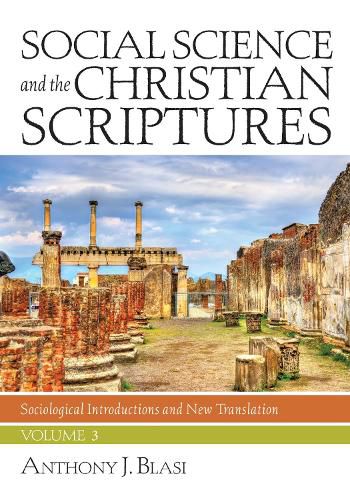Readings Newsletter
Become a Readings Member to make your shopping experience even easier.
Sign in or sign up for free!
You’re not far away from qualifying for FREE standard shipping within Australia
You’ve qualified for FREE standard shipping within Australia
The cart is loading…






This title is printed to order. This book may have been self-published. If so, we cannot guarantee the quality of the content. In the main most books will have gone through the editing process however some may not. We therefore suggest that you be aware of this before ordering this book. If in doubt check either the author or publisher’s details as we are unable to accept any returns unless they are faulty. Please contact us if you have any questions.
Sociologist Anthony Blasi analyzes early Christianity using multiple social scientific theories, including those of Max Weber, Georg Simmel, Karl Marx, Antonio Gramsci, Max Scheler, Alfred Schutz, and contemporary theorists. He investigates the canonical New Testament books as representative of early Christianity, a sample based on usage, and he takes the books in the chronological order in which they were written. The result is a series of stills that depict the movement at different stages in its development. His approaches, often neglected in New Testament studies, include such sociological subfields as sect theory, the routinization of charisma, conflict, stratification theory, stigma, the sociology of knowledge, new religions, the sociology of secrecy, marginality, liminality, syncretism, the social role of intellectuals, the poor person as a type, the sick role, degradation ceremonies, populism, the sociology of migration, the sociology of time, mergers, the sociology of law, and the sociology of written communication. Needing to treat the New Testament text as social data, Blasi uses his background in biblical studies and a review of a vast literature to establish the chronology of the compositions of the New Testament books and to present the data in a new translation that is accessible to non-specialists.
$9.00 standard shipping within Australia
FREE standard shipping within Australia for orders over $100.00
Express & International shipping calculated at checkout
This title is printed to order. This book may have been self-published. If so, we cannot guarantee the quality of the content. In the main most books will have gone through the editing process however some may not. We therefore suggest that you be aware of this before ordering this book. If in doubt check either the author or publisher’s details as we are unable to accept any returns unless they are faulty. Please contact us if you have any questions.
Sociologist Anthony Blasi analyzes early Christianity using multiple social scientific theories, including those of Max Weber, Georg Simmel, Karl Marx, Antonio Gramsci, Max Scheler, Alfred Schutz, and contemporary theorists. He investigates the canonical New Testament books as representative of early Christianity, a sample based on usage, and he takes the books in the chronological order in which they were written. The result is a series of stills that depict the movement at different stages in its development. His approaches, often neglected in New Testament studies, include such sociological subfields as sect theory, the routinization of charisma, conflict, stratification theory, stigma, the sociology of knowledge, new religions, the sociology of secrecy, marginality, liminality, syncretism, the social role of intellectuals, the poor person as a type, the sick role, degradation ceremonies, populism, the sociology of migration, the sociology of time, mergers, the sociology of law, and the sociology of written communication. Needing to treat the New Testament text as social data, Blasi uses his background in biblical studies and a review of a vast literature to establish the chronology of the compositions of the New Testament books and to present the data in a new translation that is accessible to non-specialists.